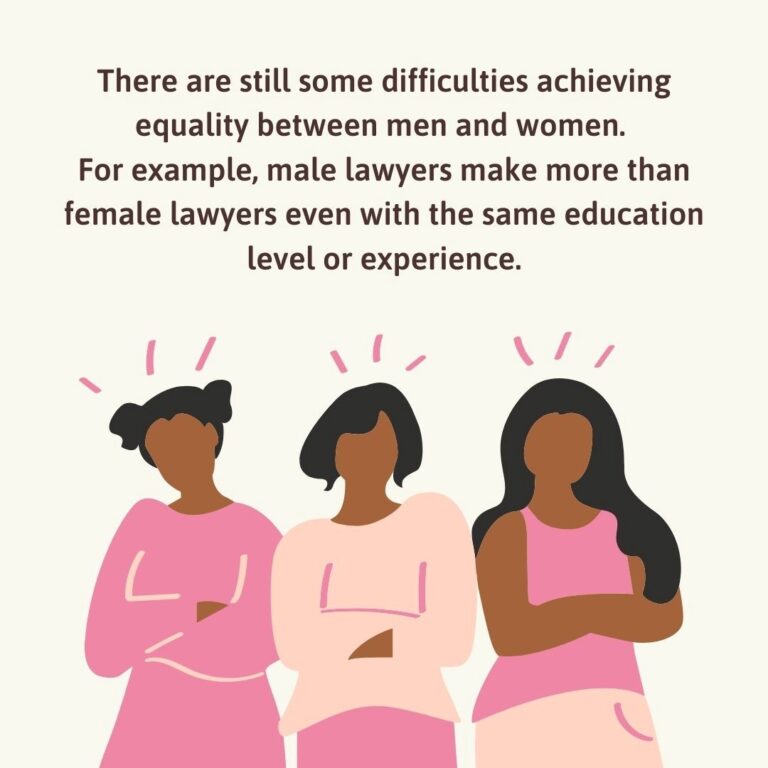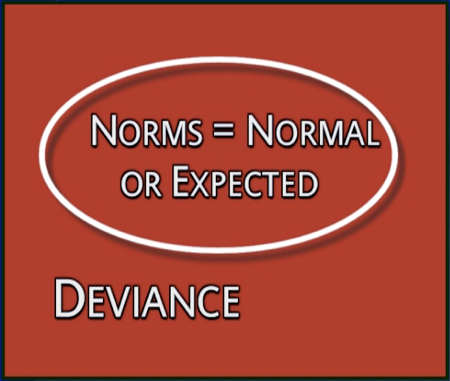Social Science- Definitions, History, and Examples
Introduction
Social science is a field of study that deals with the scientific investigation of human society, including its origin, organization, and institutions. There are many different social sciences which include anthropology, economics, history, political science, etc.
This post will focus on main aspects: definitions for each type of social sciences, how they developed over time, and examples to demonstrate their purpose/impact.
What is Social Science?
Social science is the study of human society. To better understand what it entails, we must first define some of its key terms and concepts.
Anthropology– The study of humankind in all cultures and periods from both an ethnographic and archaeological perspective.
Economics– The study of economic activity through analysis or comparison between societies or economies based on systems such as capitalism or socialism.
History– A systematic account (often chronological) of past events primarily concerned with showing causality in human affairs (rather than explaining the psychic life of man).
Political Science– The study that deals with the political and government processes. It is a social science that analyzes such topics as power, liberty, justice, etc., for their effects on society.
What is the Best Definition of Social Science?
Social science is the study of human society and its members’ interactions with each other and their relationships to cultural institutions like education or religion. Social science encompasses research on everything related to human society: family life and marriage; education in all its forms; crime both at an individual level and within society more broadly; religion and public health matters. The focus is on the individual and society.
What is the Origin of Social Science?
The origin of social science can be traced back to the 18th century with philosophers such as David Hume. He argued that we could not understand anything unless it is related to other things. In this way, he was one of the first people to emphasize correlation and causality in human affairs.
In addition, elements of what would come to be known as a social science can be found in the works of Plato. In “The Republic,” he dealt with political philosophy, which would eventually lead to sociology and anthropology.
The term “social science” was first used in 1822 by Harriet Martineau. It combines the social, which comes from society, and the sciences, meaning to study or investigate with a method of inquiry into an object.
What is the Importance of Social Science?
Social science is important because:
1} It can provide insight into how society operates and what the future may look like, and it serves as a way for us to understand each other better.
2} They help explain why people act in certain ways; they offer solutions on how human beings might live together more peacefully. For example, sociology looks at how World War II affected human society as a whole. Sociology and psychology are both social sciences.
3} They help provide explanations when there is a need to understand why something happened in society at a specific time. An example would be the Holocaust or WWI.
Social science can give us insight into how all human beings live in societies, what motivates people, and how we can function more peacefully.
What Are Some Examples of Social Science?
One example of social science is Gender Studies, a discipline within sociology that examines how people think about gender and its roles in everyday life. A major tenet is that all societies have rules for male behavior which differ from those for females’ behavior and that these rules are often codified in the form of law.
This is a very specific study within Social Science, but it gives you an idea of this broad subject. Gender Studies can examine how different cultures view gender roles or why some people may see themselves as transgender while others do not. Other examples include sociology, psychology, and anthropology.
Another example of social science is Political Science examines the nature of society by examining how different cultures deal with similar issues such as family life, education, crime, or religion. What effect does an individual’s gender have on their views about politics? How do people in a nation decide that it’s time for a new leader?
Finally, let’s talk about sociology. This is the study of human society and its members’ interactions with each other and their relationships to cultural institutions like education or religion. Sociology can examine how different cultures view gender roles or why some people may see themselves as transgender while others do not. Finally, sociology may study what effect an individual’s gender has on their views about politics.


What Are the 7 Social Sciences?
The seven social sciences are:
Sociology
Sociology is the study of how humans interact with each other in society and their relationships to cultural institutions like education or religion.
Psychology
Psychology studies how humans mentally process information, and so it has a narrower focus than anthropology which scrutinizes all aspects of human society.
Anthropology
Anthropology focuses on cultural aspects of society, whereas sociology looks at the relationships between different parts of society and how these aspects affect an individual’s behavior. Anthropology also has broader tools to understand how people live their lives within that culture, like participant-observation, whereas sociology relies more heavily on interviews.
Economics
Economics is the study of how individuals and society allocate resources; it can be subdivided into microeconomics (which looks at individual consumers) or macroeconomics which examines behavior in aggregate like inflation rates. Economics has numerous practical applications, such as designing governmental policy to help regulate business monopolies by setting a maximum number of outlets for that particular company.
Economics is sometimes called “the dismal science” because its focus is to analyze economic activity through comparisons between societies or economies. Social science studies how humans behave and interact with each other in society.
Geography
Geography is the study of how people live and what shapes their lives. Geography also includes understanding the physical environment of different parts of the world, focusing on human interaction and how that affects their surroundings.
History
History is the study of past events to better understand the present or make predictions about future ones; it is one branch within social sciences but not an entire field like sociology. History often has practical applications such as understanding how the consequences of war can influence future behavior or learning what factors led to certain outcomes in past events.
Political Science
Political science is the study of political systems and their impacts on society; it is used by politicians who want to understand public opinion or for academic purposes like analyzing different governmental structures.
Communications
Communications is the study of how information is conveyed through mass media channels and its impact on society and the individuals who interact with it.
Discuss Economics as an Area of Social Science
Economics is a branch of the social sciences that studies how individuals and society allocate resources. It can be subdivided into microeconomics (which looks at individual consumers) or macroeconomics which examines behavior in aggregate like inflation rates. Economics has many practical applications, such as designing governmental policy to help regulate business monopolies by setting a maximum number of outlets for that particular company.
As one branch within the social sciences, economics can be studied in many different ways: microeconomics (which looks at individual consumers) or macroeconomics, which examines behavior in aggregate like inflation rates.
For example, economic theory is used to help economists and government officials understand how taxes should be levied to encourage certain behaviors like saving money or using renewable energy sources.
What is the Difference Between Social Science and History?
Social science is the study of human society and its members’ interactions with each other and their relationships to cultural institutions like education or religion. On the other hand, history examines past events primarily concerned with showing causality in human affairs (rather than explaining the psychic life of man).
History tends to focus more on specific moments that are often well documented. Social science is more contemporary and multifaceted, not just looking at what happened but also how it impacted society.
History typically focuses on moments in time, whereas social sciences are broader in scope to show the cause and effect of something over an extended period. For example, history may focus on World War II, while sociology might look at how the war impacted society.
What Are the Different Definitions of Social Sciences?
There are many definitions for social science, but they all have similar themes. They look at human society and the factors that influence it, such as power, liberty, justice, etc., analyzing their effects on a group or society. There are three main aspects to this: definition of what each type of social sciences is; how they developed over time; and the methods.
Social sciences include sociology, psychology, and anthropology. Sociology is the study of human society with a focus on how people interact and their relationships to cultural institutions like education or religion. Psychology is also focused on understanding individual behavior but has more emphasis on mental processes than sociology does. Lastly, Anthropology studies all aspects of human society, from biology to culture, and is usually focused on a specific region or time.
Each one uses different methods: sociology relies heavily on interviews, which have proven themselves over the years as an effective way to collect information; psychology focuses more on observation; anthropology has even broader tools like participant-observation to understand how people in a society live their lives.
The social sciences can be used to look at history and how the past influenced what is happening now, or they can be used to predict future events by examining trends that have already occurred. Social science looks not just at moments in time but also over an extended period to see causality.
How is Social Science Different from Psychology?
Social science is the study of human society and its members’ interactions with each other and their relationships to cultural institutions like education or religion. Psychology is also focused on understanding individual behavior. It has more emphasis on mental processes than sociology does.
Social sciences include sociology, psychology, and anthropology. In contrast, psychology may be a branch in the social science field, but it is not considered a social science.
Psychology doesn’t try to understand the relationships between different aspects of society like sociology does and instead looks more at individual behavior, such as how people think or behave in certain situations. Psychology can deal with mental processes, whereas sociology focuses on group behaviors; psychology also has a narrower focus than anthropology which scrutinizes all aspects of society.
Psychology can be seen as a branch within the social science field, but it is not considered one itself and should not be confused with sociology or anthropology.
You may be interested in Antony Giddens
How is Social Science Different from Anthropology?
Social sciences include sociology, psychology, and anthropology. Anthropology studies all aspects of human society, from biology to culture, and is usually focused on a specific region or time.
Anthropology focuses more on cultural aspects of society. Sociology looks at the relationships between different parts of society and how these aspects affect an individual’s behavior. Anthropology also has broader tools to understand how people live their lives within that culture, like participant-observation. Sociology relies more heavily on interviews.
Thus, Anthropology is a social science that looks at all aspects of human society. This includes biology, culture, and usually focuses on a specific region or period.
What Are the Origins of Social Institutions?
It isn’t easy to know the origins of social institutions. Some believe that agriculture, which led to permanent settlements and villages, was one of many developments that helped form these structures (Eisenstadt). Other scholars argue that there are no known precursors for what we now call “social science” or society in terms of its organization.
The modern definition of social institutions now focuses primarily on their organization as well as what they do.


Why Do People Believe What They Believe or Do at Different Times and Places?
The study of social science is motivated by people’s belief that human behavior can be understood, predicted, and controlled.
Some believe that the complexity of society makes it difficult to understand why people behave as they do; others feel more confident in their ability to accurately predict how humans will act based on changes in external circumstances (Watson).
One explanation for people’s actions is that they are the result of their upbringing (e.g., “the way you were raised” or “look at your family background”). Explanations based on socialization and behaviorism go more in-depth about how societal norms play a role.
Some psychologists believe that human thoughts, feelings, and behaviors are all based on one’s past. Freudian theory, for example, suggests that the formative years of childhood lay down patterns in personality and behavior which persist throughout a person’s life (Coughlin).
You may also be interested in Subculture Theory
How Does Life Differ Between Men and Women and Among Women Across Periods and Cultures?
The social science of women’s studies focuses on understanding and analyzing how life differs between men and women. The early origins are found in the late 19th century. Scholars like Jane Addams, Ellen Richards, Emma Goldman, Margaret Sanger, and Mary Parker Follett looked into what it means to be female in a male-dominated society.
Women’s studies scholars have pointed out a few different ways life differs between men and women:
A) Women are more likely than men to work in the service sector, which tends not to be as well paid or valued as other jobs (Kimmel). This may lead to women being less satisfied with their jobs.
B) Women are more likely to be the primary caregivers for children and elderly relatives (Coughlin). This often means women work fewer hours in paid employment, which may lead to a lower level of job satisfaction or less time spent on leisure activities like shopping. However, this does not necessarily mean that they enjoy their unpaid roles any less.
C) Women are more likely to be sexually assaulted, abused, and murdered by men than vice versa (Kimmel).
Women’s studies scholars also believe that there is a difference in the way life differs for women across different periods or cultures:
A) For example, as an early feminist said of her own culture, “Native American women were not allowed to control their property or money-even the clothes on their back” (Coughlin).
B) Michelle Rosaldo and Louise Lamphere’s work in 1974 was an early feminist critique of anthropology from a woman’s perspective. Their main criticism is that anthropologists often ignored gender when researching a society.
C) One example of how life differs between men and women across different periods or cultures is the way traditional Chinese culture has treated boys and girls differently from each other (Gong). For instance, in China, grandparents are more likely to stop breastfeeding their grandson than granddaughter if they have another son. Doing so allows them to preserve their grandson’s “yin” for the rest of his life while breastfeeding a girl would only slow down her growth.


Is Criminology a Social Science?
Criminology is the scientific study of crime and criminals. It looks at what causes criminal behavior, how much of it there is in a certain place, and how to prevent it. This discipline studies not just punishment but rehabilitation.
Criminologists want to understand why people commit crimes to stop people from committing them again or to help rehabilitate criminals. They look at factors like poverty, childhood abuse, or physical environment to see if those impact criminal behavior later in life. Criminology has a broad scope because it looks at the societal effects of crime and not just individual actions.
This field overlaps with what is now called psychology, and sociologists have also used it in their research. Its relevance stems from how many people want to understand what causes a person to commit a crime and the societal implications, like legal punishment.
Criminology is based on the idea that human beings are rational beings who think about consequences before acting. It assumes criminals can be rehabilitated if they have certain negative influences removed.
Criminology is a social science because it focuses on human behavior and society. It also looks at the causes of criminal activity and how to help prevent or change it, which fits with psychology’s focus on changing individual behavior and sociology’s emphasis on societal factors.


I‘m a freelance content and SEO writer with a passion for finding the perfect combination of words to capture attention and express a message. I create catchy, SEO-friendly content for websites, blogs, articles, and social media. My experience spans many industries, including health and wellness, technology, education, business, and lifestyle. My clients appreciate my ability to craft compelling stories that engage their target audience, but also help to improve their website’s search engine rankings. I’m also an avid learner and stay up to date on the latest SEO trends. I enjoy exploring new places and reading up on the latest marketing and SEO strategies in my free time.







